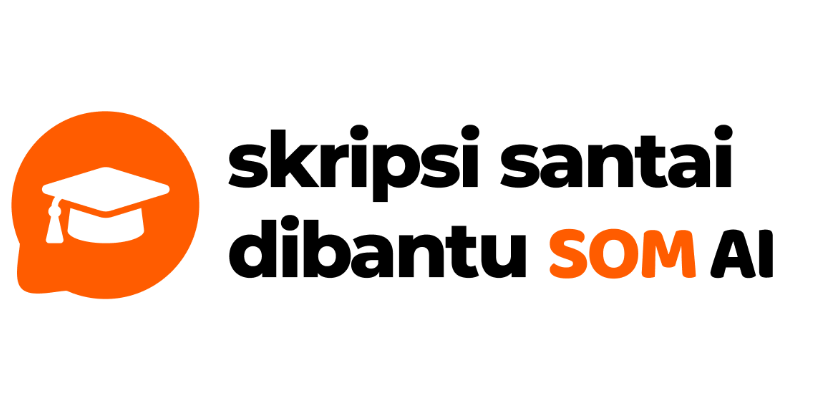Ever wondered how the rapid evolution of artificial intelligence is not only reshaping the academic world but also demanding a profound commitment to ethics and responsibility? You're not alone. As we stand on the cusp of 2025, understanding and implementing Responsible SOM AI has become an undeniable imperative for academics, researchers, and institutions alike. This article is crafted to be your definitive compass, guiding you through the most crucial trends set to define the ethical landscape of AI in higher education. We will unpack the true meaning of SOM AI, explore the foundational principles of responsible AI, examine key governance frameworks emerging globally, and highlight groundbreaking academic initiatives, including pioneering work at institutions like Yale. Prepare to equip yourself with the knowledge needed to navigate this transformative era, ensuring you can harness AI's immense potential for good while upholding the highest standards of integrity.
Unpacking ‘SOM AI' in Academia: A 2025 Perspective
In the rapidly evolving landscape of academic AI research and application, the acronym SOM AI presents a unique challenge: its interpretation can drastically alter the context, implications, and ethical frameworks required. As we look towards 2025, understanding this duality is paramount for institutions striving for responsible and impactful AI integration, ensuring that initiatives are appropriately designed and governed.
What Does ‘SOM' Mean for AI in Academia?
The term ‘SOM' in an academic context typically refers to two distinct entities: a School of Management (e.g., Yale School of Management) or a School of Osteopathic Medicine. Each ‘SOM' brings its own unique academic environment, research priorities, and data types to the application of AI. For instance, a School of Management might focus on predictive analytics for market trends, while a School of Osteopathic Medicine would prioritize AI in diagnostics or treatment protocols. This fundamental divergence in institutional mission directly shapes the entire lifecycle of SOM AI initiatives.
Distinct Implications: Management vs. Medical AI in Academia
The applications of SOM AI differ significantly across these domains. In a School of Management, AI might power sophisticated financial modeling, optimize supply chains, or analyze consumer behavior for strategic decision-making. Conversely, within a School of Osteopathic Medicine, AI is deployed for clinical diagnostics, drug discovery, personalized patient care, and understanding disease progression. These varying applications lead to profoundly different considerations regarding data sources, model interpretability, and the potential for real-world impact – from economic forecasts to human health outcomes.
Why This Clarification Matters for Responsible AI Practices
Clarifying the ‘SOM AI' context is the critical first step toward building truly responsible AI initiatives. The distinctions have a profound impact on ethical considerations, data privacy regulations, and governance frameworks. For medical AI, stringent regulations like HIPAA in the US, or GDPR's health data provisions, dictate data handling, consent, and security. Management AI, while also subject to general data protection laws, faces different ethical dilemmas, such as algorithmic bias in hiring or financial credit scoring. Without this initial clarification, academic institutions risk misapplying ethical guidelines, violating privacy laws, or failing to establish appropriate oversight for their specific SOM AI endeavors by 2025.
The Bedrock of Responsible AI in 2025: Core Principles for Academia
As Artificial Intelligence increasingly permeates every aspect of academic endeavor, from groundbreaking research to innovative teaching methodologies, establishing a robust framework for Responsible AI (RAI) in 2025 is not merely an aspiration but an imperative. This commitment ensures that academic institutions remain trusted bastions of knowledge, driving progress responsibly, particularly for initiatives like SOM AI.
Pillars of Ethical AI You Can't Ignore
For 2025, the non-negotiable pillars of Responsible AI are: fairness, ensuring AI systems produce unbiased and equitable outcomes for all users; transparency, making AI decision-making processes understandable and explainable; accountability, clearly assigning responsibility for AI system impacts and errors; privacy, rigorously safeguarding personal and sensitive data used by AI; and safety, designing AI to prevent harm and operate reliably. These five principles form the essential foundation for any ethical AI development or deployment.
Why These Principles are Crucial for Academic Research and Teaching
These core principles are not just buzzwords; they are vital for maintaining public trust in academic research, ensuring equitable societal outcomes, and fostering ethical leadership among future professionals. In medical AI applications, adherence prevents diagnostic bias and protects patient confidentiality, while in university management functions, they ensure fair resource allocation and transparent administrative decisions. Integrating these principles into SOM AI projects, for instance, builds credibility and ensures long-term societal benefit.
Making AI Ethics a Priority in Your Institution
Academic institutions must proactively embed AI ethics into their operational DNA. This involves integrating dedicated ethical AI modules into curriculum across all relevant disciplines, establishing clear research guidelines that mandate RAI adherence from conception to deployment, and cultivating an overarching ‘AI philosophy' that prioritizes human-centric and responsible development. Practical steps include forming interdisciplinary ethics review boards and providing continuous faculty and student training on AI governance.
Navigating AI's Ethical Labyrinth: Key Governance Trends for Academia in 2025
Academia, including institutions like SOM AI, faces a critical juncture in ethically deploying artificial intelligence. As AI permeates research and education, understanding and implementing robust governance frameworks is paramount to fostering trust and ensuring responsible innovation.
Evolving Regulatory Frameworks You Need to Know
To stay ahead of the curve, academic institutions must explore the evolving US regulatory frameworks for AI in 2025. This includes understanding both federal initiatives, like potential executive orders or legislative proposals, and state-level regulations. Their practical impact on academic research will dictate data handling, model development, and compliance requirements, necessitating proactive institutional adaptation.
Strategies for Bias Detection and Mitigation in Academic AI
Mastering risk management in AI is crucial. Learn actionable techniques for bias detection and mitigation strategies in datasets and models, vital for achieving equitable outcomes in academic studies and applications. This involves systematic auditing of training data, implementing fairness metrics, and developing debiasing algorithms to prevent perpetuating societal inequalities.
Ensuring AI Model Explainability (XAI) for Clarity and Trust
Understand the imperative of Ensuring AI Model Explainability (XAI). Discover methods for making complex AI decisions understandable and justifiable to diverse academic stakeholders, from researchers to students. Techniques like LIME or SHAP are essential for fostering transparency, enabling peer review, and building trust in AI-driven insights within academic contexts. Establishing interdisciplinary AI Ethics Review Boards/Committees within academic institutions is also vital to vet projects and ensure compliance.
Academia Leading the Charge: Case Studies and Initiatives in 2025
Academia is at the forefront of shaping responsible AI development and governance. In 2025, leading institutions are intensifying their efforts, offering critical insights and fostering the ethical frameworks necessary for the future of artificial intelligence. Their unique position allows for deep research, interdisciplinary collaboration, and the cultivation of ethical leaders crucial for navigating the complex landscape of AI.
Spotlight on ‘Yale School of Management's Responsible AI Initiatives'
The Yale School of Management (SOM) is a prime example, spearheading Responsible AI Initiatives that are crucial for Enterprise AI. These include cutting-edge research into AI's societal impact, specialized C-Suite Programs designed for top executives, and the Accelerated Management Program, all focusing on cultivating ethical leadership. Yale's SOM AI programs are actively preparing leaders to navigate the complex ethical dimensions of AI deployment, ensuring responsible innovation and application.
Fostering ‘Ethical Leadership' Through Academic Programs
Beyond Yale University, leading academic institutions globally are championing ethical leadership in AI. Through innovative curricula and research opportunities, they are shaping the next generation of business executives and researchers. These programs instill a deep understanding of AI's societal implications, empowering future leaders to make informed, responsible decisions that prioritize human well-being and fairness in AI development and application, thereby building a foundation for trustworthy AI systems.
The Power of ‘Interdisciplinary Collaboration' in AI Development
A key best practice emerging in 2025 is Interdisciplinary Collaboration. Universities are fostering partnerships between departments such as business, medical, ethics, law, and computer science to tackle complex AI challenges holistically. Insights from recent AI Conference discussions and Task Force reports consistently highlight academia’s unique role in driving this collaborative approach, ensuring comprehensive solutions for AI development and governance that transcend traditional disciplinary boundaries.
The Path Forward: Opportunities and Challenges for Responsible SOM AI in 2025
In 2025, responsible SOM AI faces both opportunities and challenges. Strategic foresight, ethical commitment, and practical solutions are crucial to ensure AI augments academic and business management effectively. This requires addressing persistent obstacles, embedding best practices, and anticipating future regulatory and ethical landscapes.
Overcoming Common Obstacles: Data Interoperability & Silos
A primary hurdle for effective SOM AI deployment remains data interoperability & silos. In healthcare and business academia, disparate data sources hinder comprehensive analysis. By 2025, strategies must focus on standardized APIs, collaborative data-sharing platforms, and robust data governance frameworks to break barriers, enabling richer SOM AI insights.
The Essential Role of ‘Human-in-the-Loop' AI Systems
Embracing ‘Human-in-the-Loop' AI systems is a non-negotiable best practice for responsible SOM AI. This necessitates human oversight, expert judgment, and intervention in critical academic AI applications, from research to administrative decision support. Human involvement ensures ethical considerations, contextual understanding, and accountability, preventing biases and errors.
Future Outlook: Converging AI, Ethics, and Policy in 2025
Looking ahead, 2025 will see increasing regulatory scrutiny and public demand for ‘Ethical AI' profoundly shaping SOM AI development. Advancements in explainable AI will be crucial for trust. Academic institutions must proactively integrate AI tools responsibly into management functions and business strategy, preparing for an AI-driven future by aligning research, industry, and policy with evolving ethical and regulatory landscapes.
As we've thoroughly explored, the landscape of Responsible SOM AI in 2025 for academia transcends mere technological advancement; it is fundamentally about cultivating ethical leadership, establishing informed governance, and driving practical, impactful applications. We've navigated the crucial nuances of ‘SOM AI', underscored the absolute necessity of embracing core ethical principles, and examined the evolving regulatory landscapes, drawing insights from pioneering institutions like Yale. The future of academic innovation and societal progress increasingly hinges on our collective commitment to these principles, making the responsible integration of SOM AI an imperative for every institution.
You are now exceptionally well-equipped to shape a more responsible and equitable AI future within your institution. The time to act is now. To truly lead the charge, begin by precisely defining your institution's unique ‘SOM AI' context, establishing robust internal ‘AI ethics' guidelines tailored to your specific needs, and proactively fostering ‘interdisciplinary collaboration' across departments. Furthermore, active participation in ‘AI Conference' discussions and staying abreast of the latest developments will be paramount to remaining at the forefront of this transformative field. Your proactive engagement, thoughtful leadership, and commitment to responsible practices are not just important—they are absolutely key to unlocking the full potential of SOM AI for good. What are your thoughts on responsible SOM AI in 2025? Share your invaluable insights and strategies in the comments below! Don't forget to subscribe for more expert guides, cutting-edge research, and top trends in artificial intelligence.









